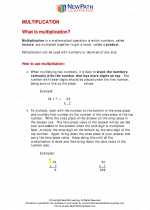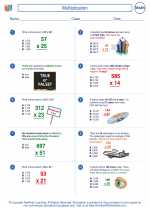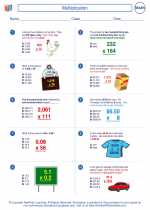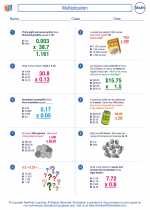Week
A week is a unit of time consisting of seven days. It is commonly used in calendars, planning, and scheduling activities. Understanding weeks and their components is important for organizing and managing time effectively.
Components of a Week:
- Days of the Week: The week consists of seven days: Monday, Tuesday, Wednesday, Thursday, Friday, Saturday, and Sunday.
- Weekend: The weekend typically includes Saturday and Sunday, which are considered non-working days in many cultures.
- Workweek: In many countries, the workweek typically starts on Monday and ends on Friday, comprising five working days.
Understanding Weeks:
To understand weeks, it's important to grasp the following concepts:
- Weekday/Weekend: Recognizing the distinction between weekdays and the weekend helps in planning activities, work schedules, and leisure time.
- Week Number: Weeks are often numbered in calendars, with the first day of the week being either Sunday or Monday, depending on the region.
- Weekdays in a Month: Understanding how many times a specific day of the week occurs in a month can aid in planning recurring events or appointments.
Study Guide:
To master the concept of weeks, consider the following study guide:
- Memorize the days of the week in order.
- Practice identifying weekdays and weekends in a given calendar month.
- Study the concept of week numbers and how they are used in different contexts.
- Calculate the number of weekdays in a specific month and identify any patterns.
- Apply the knowledge of weeks to create a weekly schedule for various activities or tasks.
By understanding the components of a week and mastering its concepts, you can effectively manage your time and plan activities with precision.
[Week] Related Worksheets and Study Guides:
.◂Math Worksheets and Study Guides Sixth Grade. Multiplication
Study Guide Multiplication
Multiplication  Worksheet/Answer key
Worksheet/Answer key Multiplication
Multiplication  Worksheet/Answer key
Worksheet/Answer key Multiplication
Multiplication  Worksheet/Answer key
Worksheet/Answer key Multiplication
Multiplication 

 Worksheet/Answer key
Worksheet/Answer key
 Worksheet/Answer key
Worksheet/Answer key
 Worksheet/Answer key
Worksheet/Answer key

The resources above cover the following skills:
The Number System
Compute fluently with multi-digit numbers and find common factors and multiples.
Fluently multiply and divide multi-digit whole numbers using the standard algorithm. Express the remainder as a whole number, decimal, or simplified fraction; explain or justify your choice based on the context of the problem.